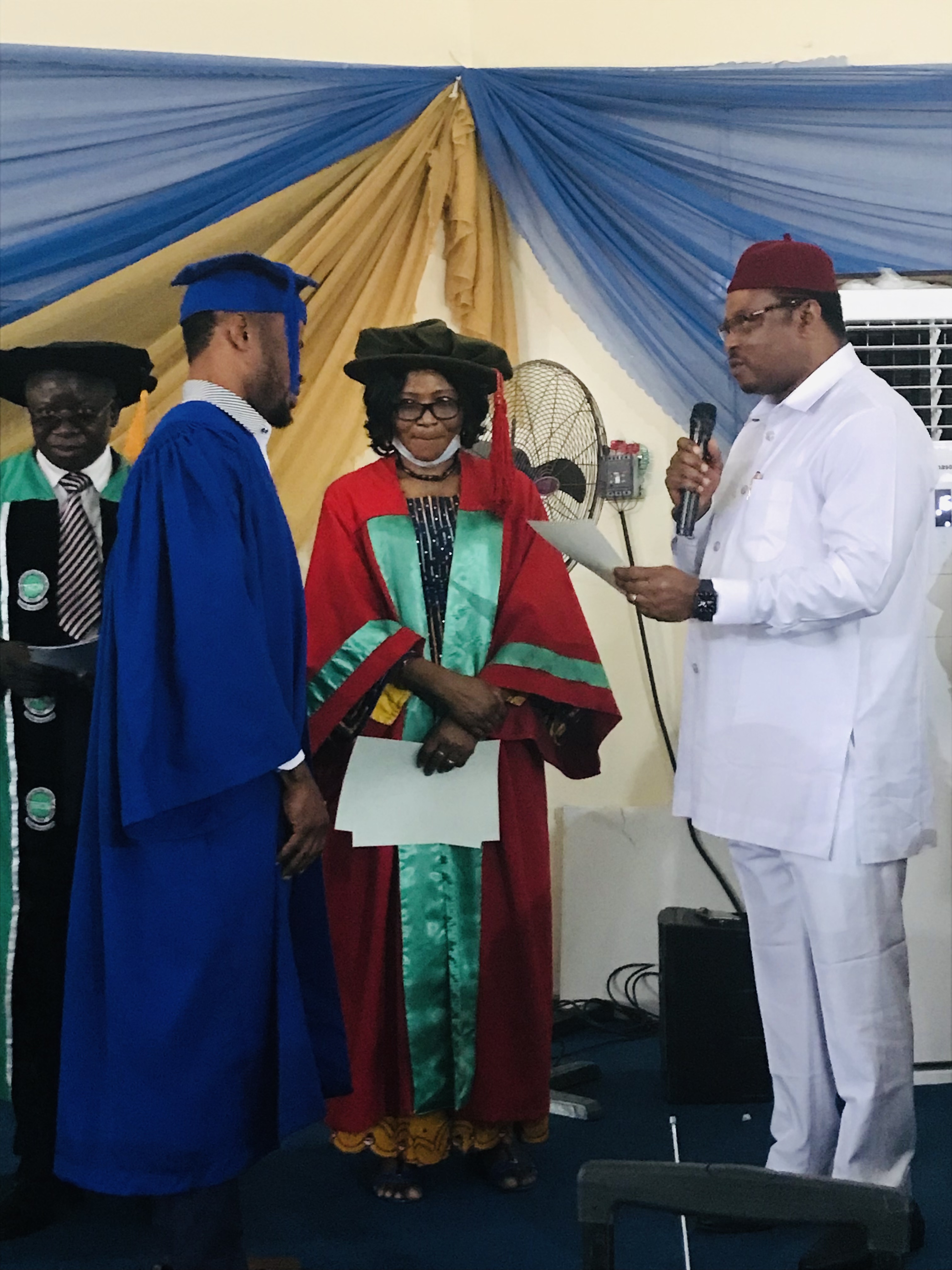By Jonathan Ugbal
Education stakeholders on Tuesday in Calabar posited that teachers are vital to ensure the sector is best positioned as an engine for national development, as the world enters the fourth industrial revolutions.
The role of teachers was the focus of conversations and presentations at the 7th induction of professional teachers in the University of Calabar (UNICAL) by the Teachers Registration Council of Nigeria (TRCN) where the induction lecturer, Professor Ekuri Emmanuel posed pertinent questions facing the 21st century teachers. These according to him include the current realities in schools, the challenges faced by teachers while bearing in mind these challenges and what teachers should do.
Ekuri said the changing realities showed that education is now learners driven, deep access to information, tools and experts as well as the ability to network and emergence of independent teachers, mentors and guides.
“Unless the learner is actively participating in the learning process, we the teachers would have failed,” Ekuri said, adding that the centrally planned curriculum “imposed” on teachers was not a effective strategy as education has moved from teachers “dishing out” instructions to “facilitating” learning, hence the need for teachers to be ICT compliant.
Asides the irrelevant curriculum, Ekuri listed poor quality education delivery, ineffective assessment of critical thinking skills as challenges in raising global citizens by teachers. These, he averred, can be tackled if teachers learnt the soft skills of “critical thinking, creativity, collaboration, communication and social skills.”
“Learning has to be related to real world situations. It has to be relevant. If it is not relevant, then it is a waste, it is an exercise in futility. We have to make learning real to the learner and know that in whatever we do, the interest of the learner is fundamental,” Ekuri said.
He urged teachers to take advantage of research and team work since, “students tend to learn better when the classroom culture is not intimidating.”
However, he acknowledged the need for the government to improve funding and existing education policies but stressed that the teachers had a role to play to ensure the education sector does not collapse before that happens.
“As committed and dedicated teachers that we are, we must not give up on ourselves or in the learner. It is our ethical and corporate social responsibility,” he said.
The TRCN has since it’s inception in 2000, registered more than 3,000,000 (three million) members and licensed over 300 thousand.
And, 137 students were inducted on Tuesday as professional teachers with the TRCN Registrar, Professor Josiah Ajiboye charging them to be models as, “the process of teaching has moved from didactic to pragmatic.”
Represented by the Director, Regulation, Accreditation and Enforcement, Enilolobo Gbolahan, Ajiboye averred that: “every teacher need to learn, unlearn and relearn as this is one of the best ways the teacher can have a firm grip of his teaching and engrave his name in the sand of time.”
He maintained that the quality of education in any society depended largely on the quality of teachers, stressing that: “the narrative of teaching and learning in the country is rapidly changing due to clear understanding by government and the private sectors of the role of the teacher in the emerging knowledge economy and the need to attract and retain the best brains in the nation’s educational institutions.”
Their role in nation building was laid bare by the Vice Chancellor, Professor Florence Obi who told them that Teachers were the core of every facet of human endeavor.
Obi, represented by the Deputy Vice Chancellor Academics, Professor Angela Oyo-Ita said: “there will be nation without teachers as their impact is felt across all levels in every facet of life.”
Reiterating this, the Acting Dean, Faculty of Education, Professor Cecilia Ekwueme said while lawyers brought structure to the society and physicians ensured the health of the people, it is the teacher that “ensures the continued development of that society. That is the privileged position of everyone engaged in education.”
Ekwueme who averred that, “the future is not some place we are going to – but one we are creating,” added that: “A teacher makes you know who you are, where you are and how best you can preserve your unique cultural identity. Hold your head high because you are one.”
Earlier, the Chairman of the planning commission, Professor John Undie shared his thoughts on the impact of technology, especially Artificial Intelligence on education and told the inductees that they were now part of the conversation.
He called for a reexamination of the human teacher in the fourth industrial revolution, especially as the use of robots and Artificial Intelligence has brought forth, the argument of whether robots can be inducted as teachers.
According to him, the new inductees have already become part of the conversation.

Since You Are Here, Support Good JournalismCrossRiverWatch was founded on the ideals of deploying tech tools to report in an ethical manner, news, views and analysis with a narrative that ensures transparency in governance, a good society and an accountable democracy. Everyone appreciates good journalism but it costs a lot of money. Nonetheless, it cannot be sacrificed on the altar of news commercialization. Consider making a modest contribution to support CrossRiverWatch's journalism of credibility and integrity in order to ensure that all have continuous free access to our noble endeavor. CLICK HERE |
New Feature: Don't miss any of our news again.Get all our articles in your facebook chat box.Click the Facebook Messenger Icon below to subscribe now
Text Advert by CRWatch :Place Yours

Will You To Learn How To Make Millions Of Naira Making Special Creams From Your Kitchen?.Click Here
Expose Your Business And Make More Sales. Advertise On CrossRiverWatch.com Today



Leave feedback about this